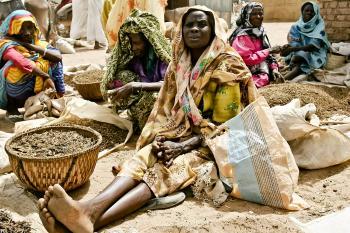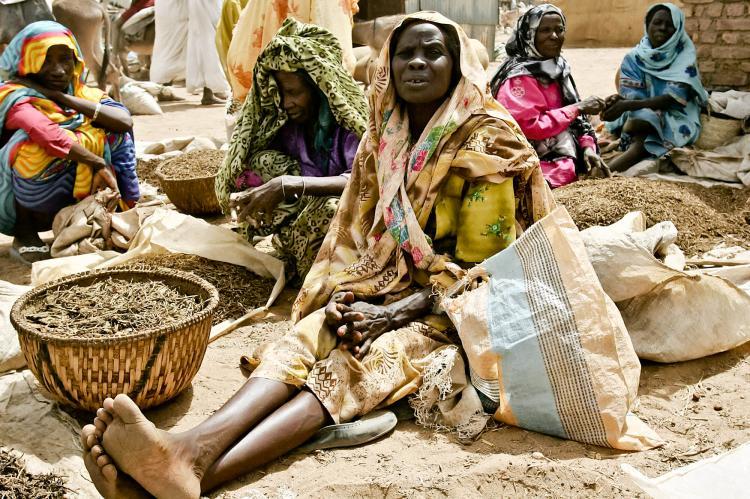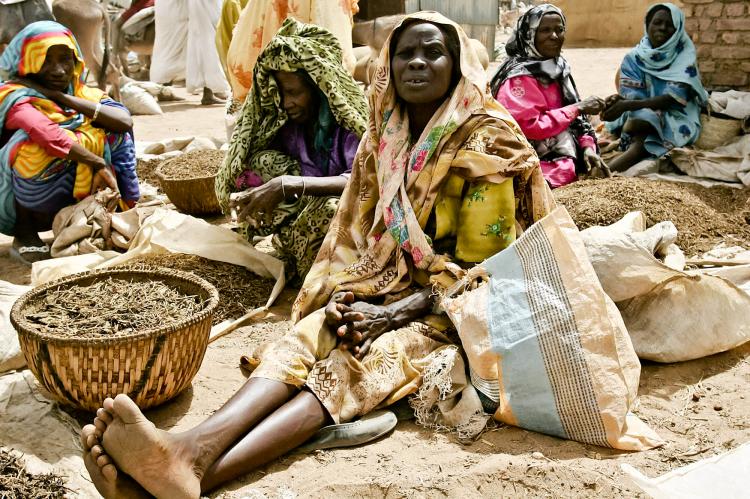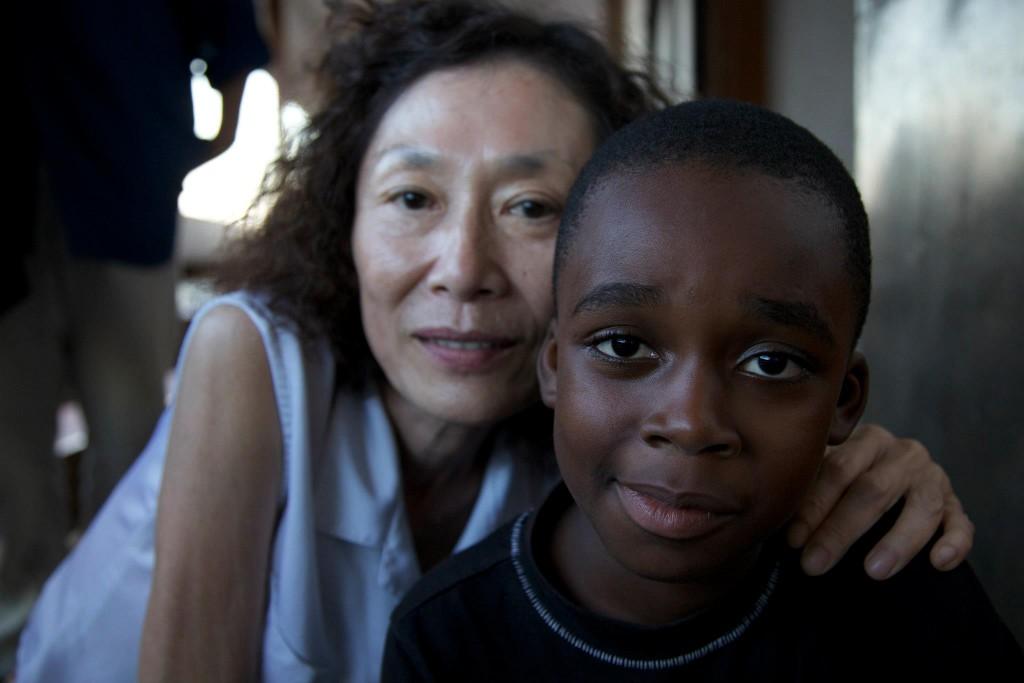As the international health community increases its efforts to fight smoking, the International Tobacco Growers Association (ITGA) is worried about the impact it would have on the livelihoods of millions of African tobacco growers.
The Framework Convention on Tobacco Control (FCTC), established under the World Heath Organization (WHO), calls on signatory countries to implement measures to reduce tobacco use in member countries. To date, 168 governments have signed onto the treaty.
Countries operating under the anti-tobacco treaty have taken a variety of measures to reduce tobacco usage. In Canada, cigarette packages are concealed under the counter to reduce visual temptation to buy them. Estonia prohibited the introduction of tobacco-vending machines, and Brazil promised that it would work on helping its tobacco growers switch to sustainable alternative crop.
But António Abrunhosa, CEO of ITGA, says the treaty is flawed because it excludes the interests of tobacco farmers.
“For some inexplicable reason, tobacco growers, the very people most affected by the guidelines, are officially excluded from any discussions. Even ministries of agriculture or economy seem unaware of the discussions taking place within the FCTC. There doesn’t seem to be any balanced form of representation whatsoever,” said Abrunhosa in a statement.
ITGA represents over 30 million tobacco growers around the world and says that in some countries, entire communities depend on tobacco as a cash crop, a crop that has been able to maintain a stable market despite the recent global economic recession.
However, countries such as Malawi, Zimbabwe, Zambia, and Tanzania, which most-heavily depend on tobacco farming, could face the loss of millions of jobs if the demand for tobacco exports is significantly reduced.
At the same time, Africa is also one of the world’s largest consumers of cigarettes, inflicting high health costs on impoverished nations. According to the United Nations Office on Drugs and Crime, in 2007 Africans smoked 400 billion cigarettes, 15 percent of which came from the illicit tobacco market.
ITGA President Roger Quarles said that the WHO has not yet proposed a viable alternative industry that could replace tobacco farming in Africa.
The director of the FCTC tobacco framework, Laurent Huber, says that to completely implement the treaty in every country would take time, as tobacco-growing countries must find alternative income-generating industries.
“We are promoting public health through the Framework Convention Alliance. ... Tobacco is still growing at this stage, there is not immediate risk,” says Huber.
Huber also said that in Africa in particular, the farmers barely make any money from tobacco crops since they need to import the seeds and the pesticides.
Hubert went on to say, “Tobacco is not a normal, usual product. It needs to be treated a little differently because it’s a leading cause of mortality … it’s not an unreasonable response for a major global problem.”
Quarles makes the point, however, that even if banned, tobacco would find its way into the black market since there will always be people who smoke.
“There will always be that 15 percent of people who know the [health] risk factors and are willing to accept the consequences,” says Quarles, pointing out that already a large number of cigarettes are smuggled across the border into Canada to avoid paying high taxes.
But Huber thinks this argument does not hold, and anyone who makes a living off of a product will try to create a sense of fear if such product is at risk of leaving the market.
“Tobacco, like anything else will enter the black market and is an issue of corruption,” he said, adding that most of the cigarette trafficking is coordinated by the tobacco industry in the respective countries.
The Framework Convention on Tobacco Control (FCTC), established under the World Heath Organization (WHO), calls on signatory countries to implement measures to reduce tobacco use in member countries. To date, 168 governments have signed onto the treaty.
Countries operating under the anti-tobacco treaty have taken a variety of measures to reduce tobacco usage. In Canada, cigarette packages are concealed under the counter to reduce visual temptation to buy them. Estonia prohibited the introduction of tobacco-vending machines, and Brazil promised that it would work on helping its tobacco growers switch to sustainable alternative crop.
But António Abrunhosa, CEO of ITGA, says the treaty is flawed because it excludes the interests of tobacco farmers.
“For some inexplicable reason, tobacco growers, the very people most affected by the guidelines, are officially excluded from any discussions. Even ministries of agriculture or economy seem unaware of the discussions taking place within the FCTC. There doesn’t seem to be any balanced form of representation whatsoever,” said Abrunhosa in a statement.
ITGA represents over 30 million tobacco growers around the world and says that in some countries, entire communities depend on tobacco as a cash crop, a crop that has been able to maintain a stable market despite the recent global economic recession.
However, countries such as Malawi, Zimbabwe, Zambia, and Tanzania, which most-heavily depend on tobacco farming, could face the loss of millions of jobs if the demand for tobacco exports is significantly reduced.
At the same time, Africa is also one of the world’s largest consumers of cigarettes, inflicting high health costs on impoverished nations. According to the United Nations Office on Drugs and Crime, in 2007 Africans smoked 400 billion cigarettes, 15 percent of which came from the illicit tobacco market.
ITGA President Roger Quarles said that the WHO has not yet proposed a viable alternative industry that could replace tobacco farming in Africa.
The director of the FCTC tobacco framework, Laurent Huber, says that to completely implement the treaty in every country would take time, as tobacco-growing countries must find alternative income-generating industries.
“We are promoting public health through the Framework Convention Alliance. ... Tobacco is still growing at this stage, there is not immediate risk,” says Huber.
Huber also said that in Africa in particular, the farmers barely make any money from tobacco crops since they need to import the seeds and the pesticides.
Hubert went on to say, “Tobacco is not a normal, usual product. It needs to be treated a little differently because it’s a leading cause of mortality … it’s not an unreasonable response for a major global problem.”
Quarles makes the point, however, that even if banned, tobacco would find its way into the black market since there will always be people who smoke.
“There will always be that 15 percent of people who know the [health] risk factors and are willing to accept the consequences,” says Quarles, pointing out that already a large number of cigarettes are smuggled across the border into Canada to avoid paying high taxes.
But Huber thinks this argument does not hold, and anyone who makes a living off of a product will try to create a sense of fear if such product is at risk of leaving the market.
“Tobacco, like anything else will enter the black market and is an issue of corruption,” he said, adding that most of the cigarette trafficking is coordinated by the tobacco industry in the respective countries.







